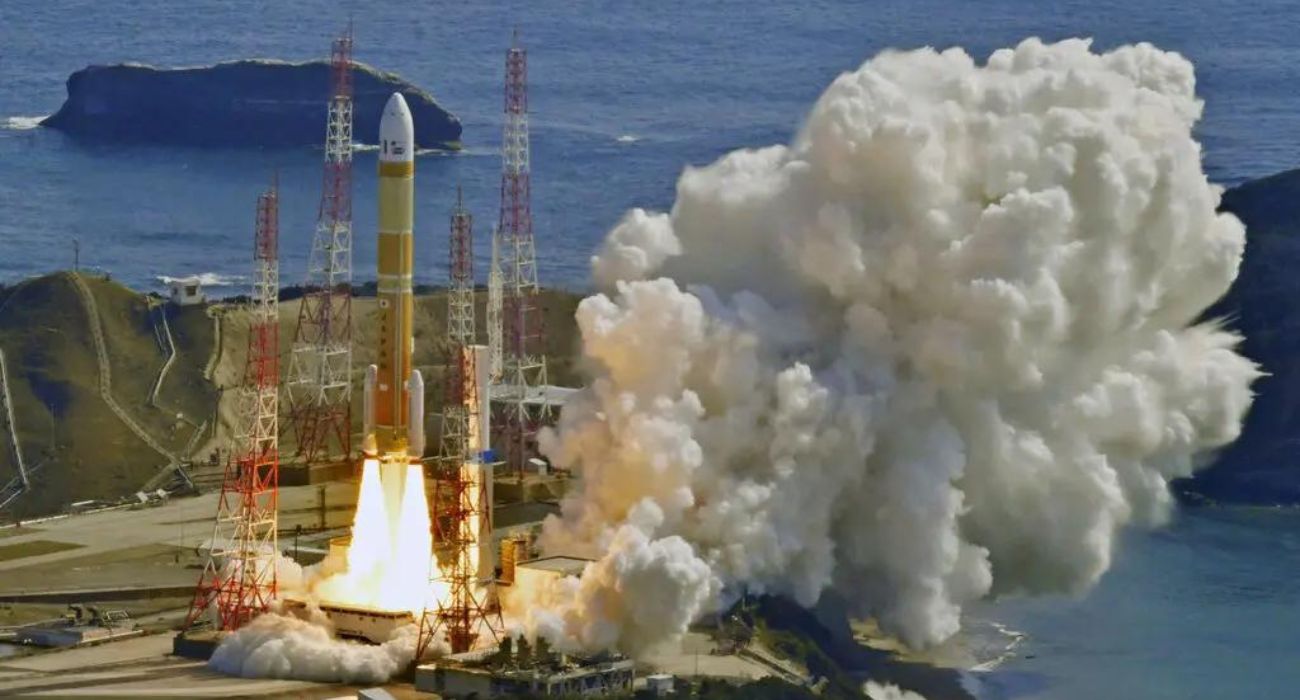Japan’s aspirations of becoming a global space power hit a snag this week.
On March 6, the country’s flagship heavy-lift H3 rocket was destroyed minutes after its second-stage engine did not properly ignite in its inaugural flight.
The incident follows an aborted launch last month.
In tears, Masashi Okada, the H3 project manager at the Japan Aerospace Exploration Agency (JAXA), described the first aborted launch as “galling,” per Reuters.
“A lot of people have been following our progress and we are really sorry,” Okada told the media.
The mishap was live-streamed by JAXA.
When the H3 first took off from the Tanegashima Space Center, things seemed to be going well, per Spaceflight Now. Two minutes into the mission, the rocket’s two boosters burned out and jettisoned, followed by the separation of its nose cone a minute and a half later.
But just as it reached space, the second-stage firing of the launcher’s hydrogen-fueled engine did not happen. The H3 lost speed and could not enter into a stable orbit around Earth.
Yasuhiro Funo, JAXA’s director for launch implementation, explained that they were forced to make the rocket self-destruct out of safety concerns, per AP News. Its debris has since fallen and sunk off the coast of the Philippines.
The rocket was designed to provide a low-cost option for launching commercial and government satellites into space, allowing Japan to compete with companies like Elon Musk’s SpaceX.
The H3 rocket, which is 187 feet tall, is Japan’s first new model in decades and the successor to the H2 rocket, which is due to be retired. JAXA developed the rocket in collaboration with contractor Mitsubishi Heavy Industries. It is designed to be both low-cost and efficient to rival SpaceX’s reusable Falcon 9 rocket.
JAXA President Hiroshi said the rocket is “extremely important” for Japan’s government, private companies, and universities, as it ensures independent access to space and international competitiveness, as reported by Reuters. The rocket’s destruction is a significant setback for Japan’s ambitions to become a major player in the global space market.
The H3 will also be used to launch government and commercial satellites into space.
Monday’s rocket was carrying an advanced land observation satellite. This satellite would have allowed Earth-imaging crucial for disaster response and monitoring North Korean missile launches, according to The Washington Post.
As previously reported by The Dallas Express, late last month, North Korea conducted its third missile launch this year, landing just short of Japan’s exclusive economic zone.
The failure of the H3 has prompted JAXA to establish a task force to investigate the incident.
Josef Aschbacher, the European Space Agency’s director general, expressed his sympathy and tweeted his support for Japan. He described Japan as a “steadfast partner” and wished for a quick return to the launchpad.






